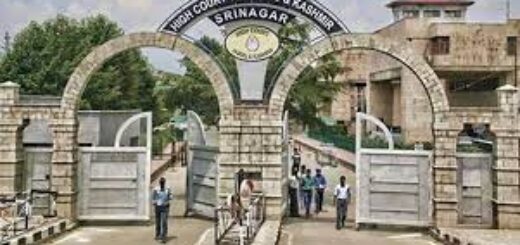Telangana High Court Overturns POCSO Conviction, Finds No Evidence of Forced Detention on Victim’s Body, and Claims Witnesses Have Unreliable Testimonies.

The Telangana High Court overturned a man’s conviction in a rape case, noting that the victim’s body showed no evidence of being forcibly held for eight months. The court pointed out that there was a complete “lull” after she went missing and supposedly escaped from the accused. This decision came during a Criminal Appeal against the trial court’s conviction under various sections of the Indian Penal Code and the POCSO Act. Justice K. Surender remarked that when the victim returned home and underwent a medical examination, the doctor found no signs of her being tied up or in poor condition from prolonged captivity. If she had been held for eight months with her hands and legs bound, there would have been visible signs of that, and her health would have suffered. The lack of such evidence raised doubts about her claim of being forcibly kept in the house of a witness.
The appellant was represented by Advocate Kiran Palakurthi, while the respondent was represented by the Public Prosecutor. The prosecution claimed that the victim was abducted by the accused on her way home and was kept in a rented room, chained, and forced into a false marital relationship while being raped multiple times over eight months. She eventually escaped and told her parents about the crime. They took her to the police, where it was established that she was 15 years old at the time of the incident. A medical examination was conducted, and statements were taken. However, the victim’s father claimed she was 17 when she went missing, while her mother insisted she was 15. The trial court ultimately determined her age to be 15 based on school records and other evidence.
The Appellant’s lawyer argued that the prosecution failed to prove the victim girl’s age as 15 and did not clearly establish the location of the crime. He pointed out that when the house owner was questioned, she did not mention anything about the girl being forcibly held. He highlighted a major flaw in the prosecution’s case: an unexplained delay of eight months in filing the complaint. In contrast, the Additional Public Prosecutor claimed there was no reason for the girl to lie about the Appellant, who was closely related to her and took advantage of that relationship to detain and sexually assault her for eight months.
The Court noted that, contrary to the victim’s statements, the Doctor found no evidence of her being tied up or in poor condition from prolonged detention. The Court stated, “If the girl had been held for eight months with her hands and legs tied, there would be visible signs of that, and her health would have suffered. The absence of such signs raises doubts about the victim’s claim of being forcibly kept in PW.6’s house. Furthermore, PW.6, the house owner, did not report any forcible detention or hear cries for help during the eight months the Appellant stayed there with the victim. PW.3, in her statement under Section 164 of Cr.P.C., acknowledged being detained in B.N.Reddy Colony, but the evidence from PW.6 indicated that the actual location of the crime was Bonguloor, which is about 14 kilometers away from B.N.Reddy Colony,” the court remarked.
One issue that raises doubt is that neither the parents nor the police took any action during the eight months the girl was missing, the court noted. “Witnesses and investigators have not mentioned any efforts made to find the girl during this time. It seems that the true events of that period are being hidden by the prosecution. The complete silence from June 3, 2022, to February 20, 2023, suggests that the prosecution witnesses may be presenting a biased account. The court questioned how PW.3 managed to escape after being detained for eight months with her hands and legs bound, as there was no evidence found at the crime scene to support this claim,” the court stated.
The case suggests that the victim may have stayed with the accused willingly, but the court added that this consent would not matter if she was under 18. “No explanation was provided for the absence of documents from the Municipal Authorities or the hospital regarding her birth. The police also did not arrange for an ossification test to determine her age. It is crucial for the prosecution to establish the victim’s age as a minor to eliminate any reasonable doubt that could lead the court to accept any form of consent. In this case, the claim that PW.3 was restrained for eight months is hard to believe. While the father, PW.1, claims PW.3 was 17 in 2022, both the victim and her mother have given different statements,” the court remarked.
The Court believed that based on the Supreme Court’s comments in the P. Yuvaprakash case, the prosecution did not successfully prove that the victim girl was a minor. The doctor, referred to as PW.9, examined the victim, PW.3. She reported no external injuries and noted that the hymen was not intact. She found no evidence of recent sexual intercourse, but she could not dismiss the possibility of sexual assault. The doctor did not observe any signs of forced intercourse or that the victim was restrained during the act, the court noted. As a result, the appeal was granted.
Cause Title: Amgothu Vinod vs. The State of Telangana









